Every year, millions of people take prescription and over-the-counter drugs without issue. But for some, a medication can cause a serious, even life-threatening reaction. If you suspect a drug caused harm-whether you’re a patient, caregiver, or healthcare provider-you have a critical role to play. Reporting it to the FDA isn’t just a formality. It’s how hidden dangers get found, labels get updated, and future patients get protected.
Why Reporting Matters
Clinical trials test drugs on thousands of people. But once a drug hits the market, millions use it. That’s when rare side effects show up-ones that never showed up in trials. The FDA’s Adverse Event Reporting System (FAERS) collects these reports to spot patterns. One report might seem small. But when hundreds of similar reports pile up, the FDA can act. In 2022, FAERS received over 2 million reports. That’s how they found dangerous interactions, unexpected side effects, and even life-threatening risks with drugs like certain diabetes medications and blood thinners.Here’s the hard truth: only about 6% of serious adverse reactions are reported. Most go unreported because people don’t know how, think it’s not serious enough, or assume someone else already reported it. That gap leaves patients at risk. Your report could be the one that triggers a warning, a recall, or a label change that saves someone’s life.
What Counts as a Reportable Reaction?
Not every minor side effect needs a report. The FDA defines a serious adverse event as one that:- Results in death
- Is life-threatening
- Requires hospitalization or extends an existing hospital stay
- Causes permanent disability or significant loss of function
- Leads to a birth defect
- Requires medical or surgical intervention to prevent permanent harm
For example: severe liver damage after taking a new painkiller, sudden heart rhythm changes from an antibiotic, or unexplained bleeding after starting a new blood thinner. Even if you’re not sure the drug caused it-if there’s a reasonable chance it did, report it. The FDA doesn’t need proof. They need data to investigate.
Who Can Report?
Anyone can report. Patients, family members, nurses, doctors, pharmacists, and caregivers. You don’t need to be a medical professional. If you saw or experienced a reaction that fits the serious criteria, you’re the right person to report it.Manufacturers are legally required to report serious reactions within 15 days. But voluntary reports from the public make up about 40% of all submissions. That means your voice matters. In 2021, a nurse reported severe low blood sugar in a patient taking a new diabetes drug. Within 47 days, the FDA updated the drug’s label to warn about that risk. That report came from someone who noticed something unusual-and didn’t ignore it.
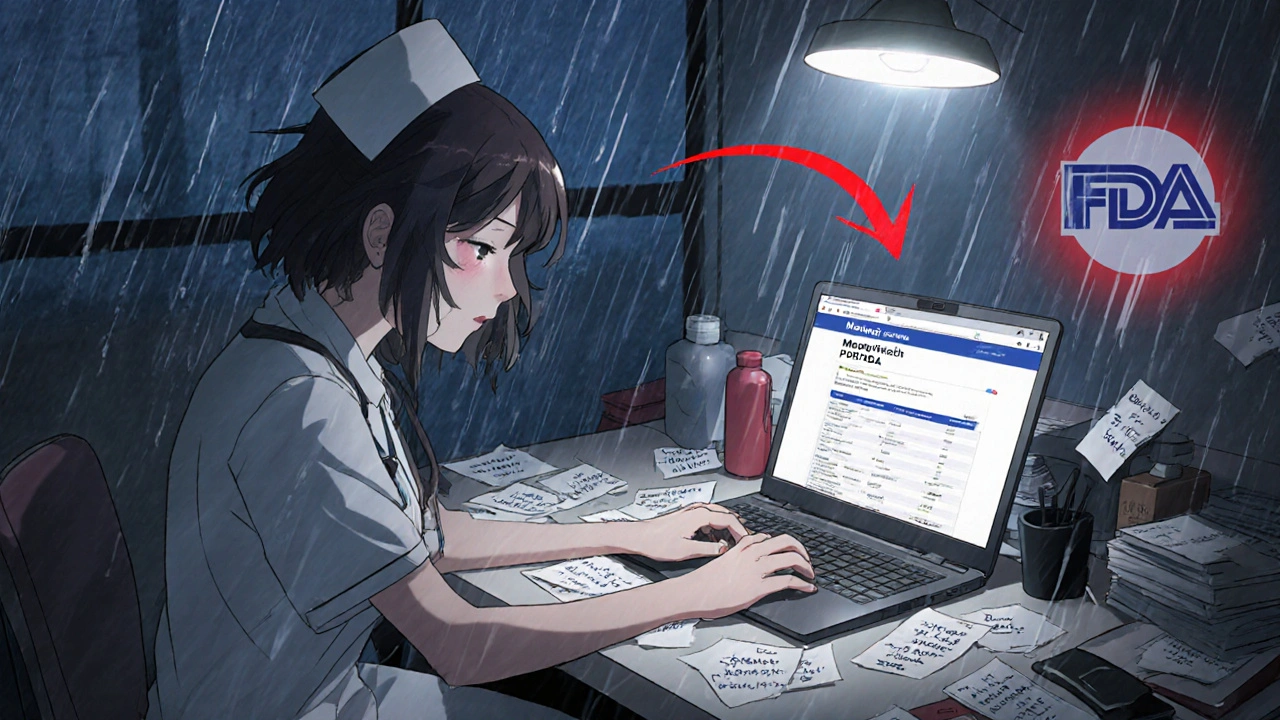
How to Report: Three Simple Ways
You have three easy options to report an adverse reaction to the FDA. All are free and confidential.1. Online via MedWatch (Fastest and Recommended)
Go to the FDA’s MedWatch portal and fill out Form 3500. This is the most efficient method. You’ll need:- Patient info: age, sex, and weight (if known)
- Drug details: brand name, generic name, dose, how often taken, and how long they took it
- Adverse event: what happened, when it started, how long it lasted, and how severe it was
- Outcome: did the person recover? Were they hospitalized? Did they die?
- Your info: name, phone, email (optional but helpful for follow-up)
The form takes 20-25 minutes to complete. Most people find it straightforward. The FDA’s 2021 survey showed 72% satisfaction with the online system. If you get stuck, call 1-800-FDA-1088 for help.
2. Phone (For Urgent Cases or If You Can’t Use the Web)
Call the FDA’s MedWatch hotline at 1-800-FDA-1088. A representative will walk you through the details over the phone. This is useful if:- You’re not comfortable filling out forms
- You’re reporting a death or life-threatening event and want to speak to someone immediately
- You’re unsure whether the event qualifies
Average wait time is under 10 minutes. The hotline also handles clinical questions and can connect you with a pharmacist if you need help describing symptoms.
3. Mail (Print and Send Form 3500)
Download Form 3500 from the FDA website, fill it out by hand, and mail it to:FDA MedWatch
5600 Fishers Lane
Rockville, MD 20852-9787
This method is slower but still valid. It’s best if you don’t have internet access or prefer paper records.
What Happens After You Report?
Once submitted, your report enters FAERS. It’s coded using standardized medical terminology (MedDRA) and grouped with similar reports. The FDA’s team of pharmacologists and data analysts looks for patterns. If 10 or more reports show the same rare reaction with a specific drug, they may:- Issue a safety alert to doctors and pharmacies
- Update the drug’s label with new warnings
- Require the manufacturer to conduct further studies
- Restrict use of the drug
- In extreme cases, pull the drug from the market
You won’t get a personal update unless you provided contact info. But your report becomes part of a public safety database. Anyone-doctors, researchers, even other patients-can search FAERS to see what’s been reported.
Common Mistakes to Avoid
Many reports get rejected or delayed because of simple errors. Don’t let yours be one of them.- Don’t skip the drug name. Use both brand and generic names if you know them. “I took the blue pill” isn’t enough.
- Don’t assume causality. You don’t need to prove the drug caused it. Just describe what happened and when.
- Don’t wait. For serious events, report as soon as possible. The sooner the FDA sees a pattern, the faster they can act.
- Don’t think it’s not serious. If it landed someone in the hospital or caused lasting harm, it’s reportable.
- Don’t report to your doctor alone. While your doctor should know, only the FDA has the system to detect nationwide patterns.
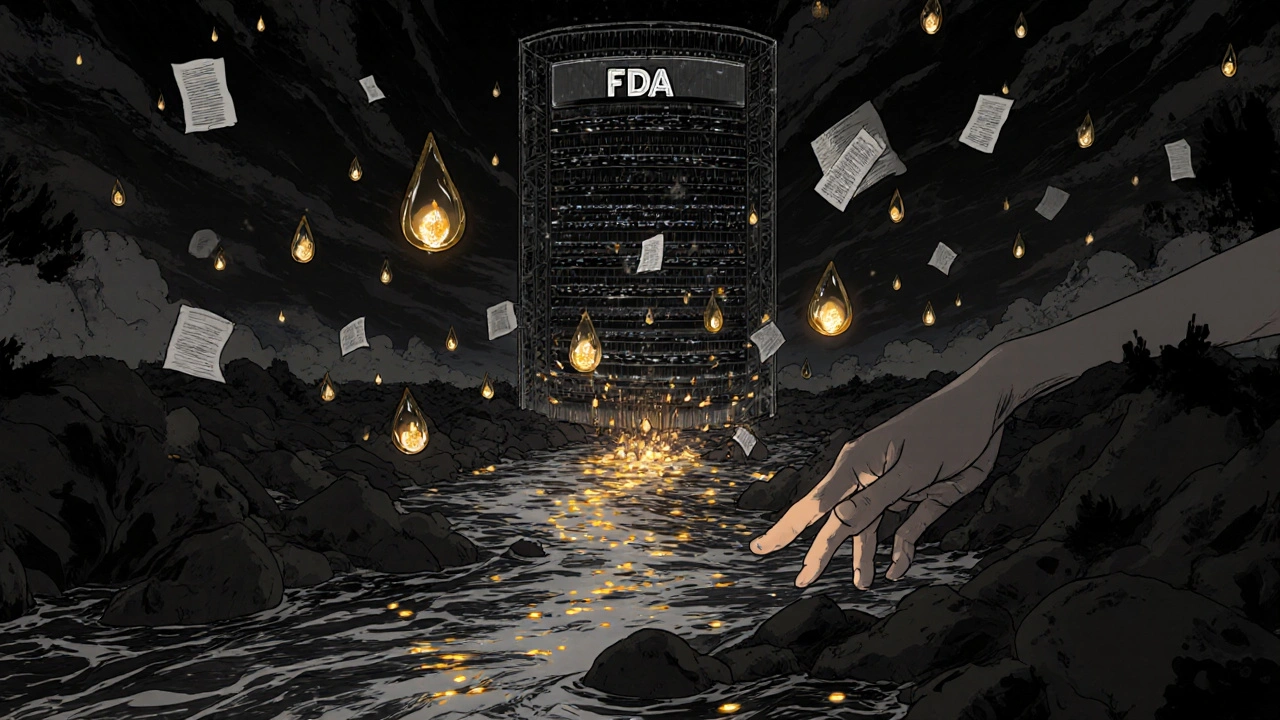
What About Over-the-Counter Drugs and Supplements?
Yes. The FDA accepts reports for OTC meds like ibuprofen, acetaminophen, and allergy pills. Supplements like herbal products, vitamins, and weight-loss teas are also included. These are often overlooked, but they’re responsible for thousands of reactions each year. A 2022 study found that 1 in 5 ER visits involving supplements were due to unexpected interactions or side effects. Report them too.What’s Changing Soon?
The FDA is making reporting easier and smarter. By the end of 2025:- Electronic health records will automatically send adverse event data to the FDA.
- Companies will use AI to scan medical literature and flag potential safety signals.
- Reports from social media and patient forums may be formally collected and analyzed.
These changes will help catch problems faster. But until then, your manual report is still vital.
Need Help? Resources Are Available
If you’re confused about what to report or how to fill out the form:- Call MedWatch at 1-800-FDA-1088
- Email [email protected] for technical help (response within 24 hours)
- Watch free FDA webinars (monthly, 90 minutes) that walk you through the process
- Use the FDA’s free MedDRA training modules to learn how to describe symptoms accurately
You don’t need to be an expert. Just be observant. If something feels wrong after taking a drug, trust your gut. Report it.
Do I need to prove the drug caused the reaction to report it?
No. You don’t need to prove causation. The FDA’s job is to look for patterns across thousands of reports. Even if you’re unsure, describe what happened, when, and with which drug. The agency uses statistical tools to determine possible links.
Can I report an adverse reaction for someone else?
Yes. Family members, caregivers, or even friends can report on behalf of a patient. You’ll need to provide the patient’s basic info (age, sex) and details about the reaction. Your contact info is optional but helpful if the FDA needs to follow up.
Will my report be kept private?
Yes. Your personal information is protected under federal privacy laws. The FDA does not release names, addresses, or contact details publicly. Reports in the FAERS database are anonymized and aggregated for analysis.
How long does it take for the FDA to act after a report?
There’s no fixed timeline. Some reports lead to action within weeks if they’re part of a larger pattern. Others may take months or years. The system is designed to detect trends, not respond to single events. But every report adds to the data pool-so even if nothing happens right away, your report still contributes to long-term safety.
Should I report a mild side effect like nausea or dizziness?
Only if it’s persistent, severe, or unusual. Mild side effects like occasional nausea are common and usually don’t need reporting. But if nausea lasts weeks, causes dehydration, or happens with a new drug you’ve never taken before, it’s worth reporting. When in doubt, report it.
Do I need to tell my doctor before reporting?
You don’t have to, but it’s a good idea. Your doctor may be able to help you describe the reaction accurately or rule out other causes. But if you’re worried about the drug and your doctor dismisses your concerns, don’t wait. Report it directly to the FDA.




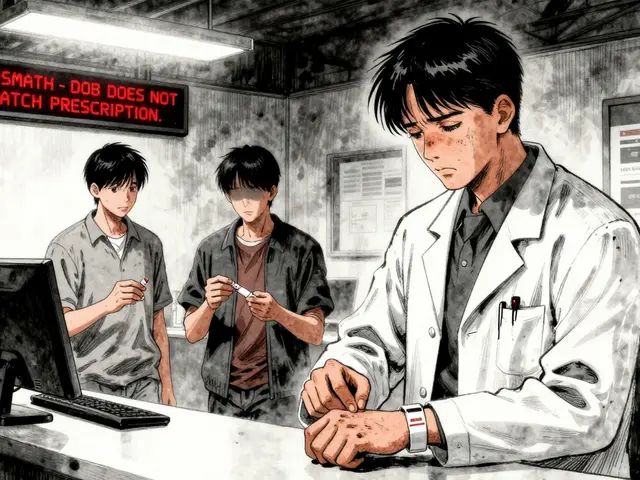
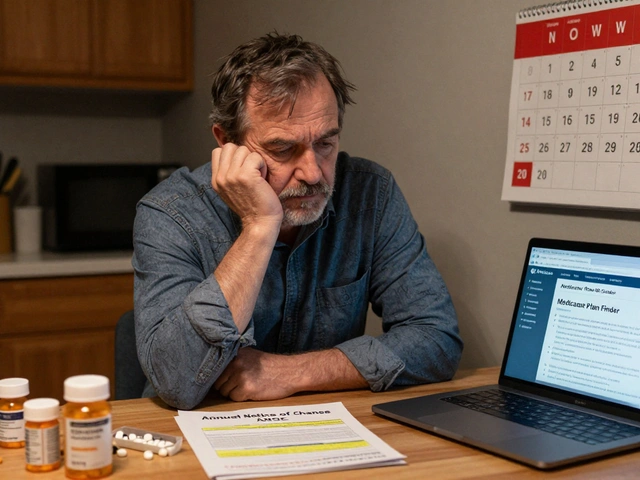



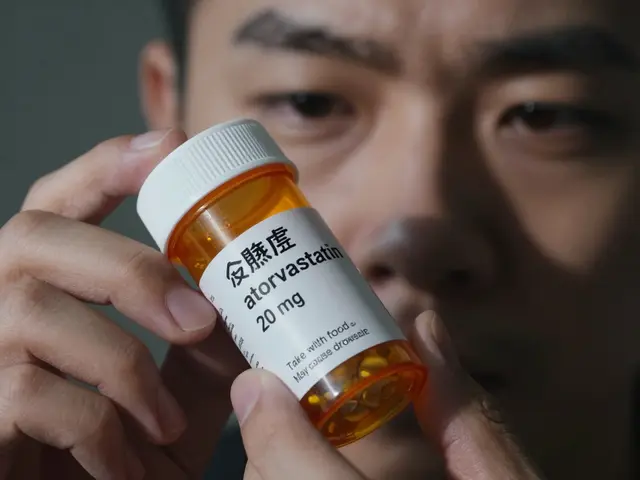

ASHISH TURAN
15 Nov 2025 at 17:52Just reported my mom’s liver issue after her new statin. Took me 22 minutes on MedWatch. Felt weird at first-like I was tattling-but then I remembered: someone’s kid might not end up in the ER because of this.
Thanks for the guide.